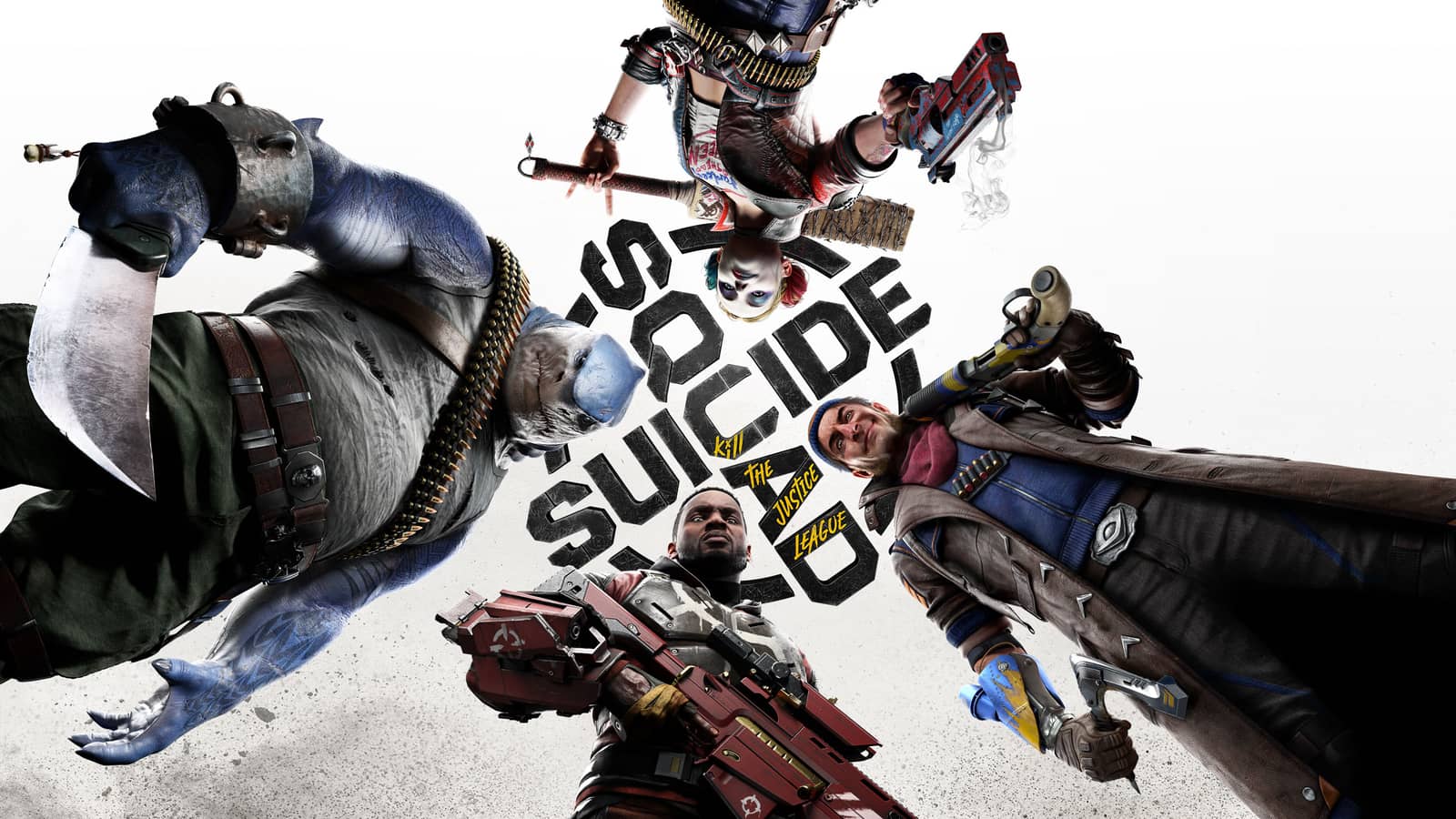Welcome to your dedicated guide on finding the best laptop for Suicide Squad: Kill The Justice League. This action-packed, open-world title requires a laptop that can handle its stunning visuals, complex AI behaviors, and high-speed action without stuttering or lagging. It's not just about finding a high-performance machine; it's about seeking out a laptop that can truly deliver the immersive experience this game deserves.
As someone with a deep passion for gaming laptops and a love for the Suicide Squad universe, I've spent countless hours reviewing an extensive laptop spreadsheet of recent releases, comparing specs, and poring over both professional and user-generated reviews. This process has allowed me to zero in on the top laptops that can meet the unique demands of Suicide Squad: Kill The Justice League, accommodating various price ranges and balancing performance with portability.
Keep in mind that this isn't your average run-of-the-mill game. It's a title that's set in a richly detailed Metropolis teeming with heroes, villains, and explosive action. This game is a visual feast, with its detailed character models, vibrant color palette, and dynamic lighting effects. Therefore, the best laptop for Suicide Squad: Kill The Justice League should offer excellent graphics performance, a high refresh rate display, and a robust cooling system to keep things running smoothly during those intense battles against Superman and the rest of the Justice League.
Unleashing Power: Choosing the Right Processor!
Deciding on the right laptop Processor for Suicide Squad: Kill The Justice League
Are you ready to embark on an epic gaming adventure with Suicide Squad: Kill The Justice League? Whether you're a casual gamer or a hardcore enthusiast, having the right laptop processor is crucial for smooth gameplay and immersive graphics. In this section, we'll explore the different options available in the laptop processor market and help you make an informed decision based on your budget and performance needs.
What's new in the laptop processor market
The laptop processor market has seen some exciting developments in recent years. Apple has made waves with their ARM-based M1, M2, M2 Pro, and M2 Max system-on-chip modules, offering exceptional single-core performance and impressive battery life. AMD has also gained significant ground, capturing 20% of the laptop CPU market. Their 6th and 7th-generation Ryzen processors are powering numerous notebooks, providing a great balance between performance and efficiency. Intel, on the other hand, has released their 13th-generation Core processors, but the 12th-generation Core CPUs still offer excellent value for those who don't require cutting-edge performance.
Why do you need a fast CPU for video editing?
When it comes to gaming and video editing, having a fast CPU is essential. Video editing tasks, such as rendering and encoding, are highly CPU-intensive. A faster processor will not only shorten the time it takes to complete these tasks but also improve overall system responsiveness. If you plan to edit your gameplay footage or create cinematic videos of your gaming adventures, investing in a powerful processor will pay off.
The trade-offs between performance and battery life
When choosing a processor for your laptop, it's important to consider the trade-offs between performance and battery life. Apple's silicon chips, based on a hybrid performance/efficiency core design, excel at balancing power efficiency with impressive performance. However, Intel's chips struggle to keep power consumption low enough, while AMD's Ryzen models offer excellent battery life in PC laptops.
How I rank processors by performance
To gauge processor performance, I rely on popular benchmarks like Cinebench R23 and 3DMark. Cinebench R23 is a widely-used benchmark that measures CPU performance by rendering a complex 3D scene, while 3DMark benchmarks provide insights into a laptop's gaming capabilities. Remember that benchmark scores are not the only factor to consider when selecting a processor. Other factors like thermal design power (TDP) and core count also play a role in overall performance.
Recommended laptop processors for Suicide Squad: Kill The Justice League
Now that we have a better understanding of the laptop processor landscape, let's take a look at some recommendations for different budgets. Keep in mind that prices may vary, but these recommendations should give you a good starting point:
| Budget | Processor |
|---|---|
| Minimum | Intel Core i5-11th Gen or AMD Ryzen 5 |
| Recommended | Intel Core i7-11th Gen or AMD Ryzen 7 |
| High-end | Intel Core i9-11th Gen or AMD Ryzen 9 |
If you're on a tight budget, an Intel Core i5-11th Gen or an AMD Ryzen 5 processor will provide adequate performance for gaming. For a smoother experience with higher graphical settings, consider stepping up to an Intel Core i7-11th Gen or an AMD Ryzen 7 processor. And if you want the absolute best performance and are willing to invest more, an Intel Core i9-11th Gen or an AMD Ryzen 9 processor will deliver the power you need to take on any gaming challenge.
Remember to check the specific requirements for Suicide Squad: Kill The Justice League to ensure compatibility with your chosen processor.
With these recommendations, you'll be well-equipped to make an informed decision and find the perfect laptop processor for your gaming needs. Happy gaming and may the force be with you!
Power Up with the Right Graphics Card!
Deciding on the right laptop Graphics card for Suicide Squad: Kill The Justice League
If you're eagerly anticipating the release of Suicide Squad: Kill The Justice League and looking to play it on a laptop, you'll need a dedicated graphics card. While integrated graphics can handle some lighter games, a dedicated GPU will provide the best possible experience for this highly anticipated title.
When it comes to laptop graphics cards, Nvidia continues to dominate the market. The recently released RTX 40 series cards are starting to hit the shelves, but the majority of laptops still feature Nvidia's RTX 30 series. It's worth noting that desktop GPUs have become more power-hungry, resulting in a wider gap between notebook and desktop graphics cards in recent years.
One important thing to consider is that Nvidia has discontinued the Max-Q label for its RTX graphics cards. Instead, the exact GPU wattage is determined by the laptop manufacturer (OEM). This can result in a significant variance in graphics performance even among laptops with the same GPU chipset.
When deciding on the right graphics card for your laptop, the main factor to consider is the amount of VRAM required by the game. For example, if you choose a laptop with an RTX 2060 or RTX 2070, it's recommended to have at least 6 GB of VRAM. On the other hand, if you opt for a GTX 1070 or above, aim for 8 GB of VRAM.
To compare different GPUs, I rely on 3DMark benchmarks. 3DMark provides an accurate representation of performance differences between various models. However, it's important to note that these scores don't tell the whole story, as some games are more demanding than others. For instance, Assassin's Creed Odyssey and Call of Duty Black Ops 4 have higher GPU requirements than titles like Fortnite or PUBG.
While gaming laptops offer a portable solution for gaming enthusiasts, they're not a requirement for enjoying most games. In fact, I personally play games on a non-gaming laptop and still have a great time. However, if you're looking for the best possible gaming experience, a dedicated gaming laptop is your best bet.
Now, let's get to the fun part! Here are some recommendations for different price ranges, along with what you can expect from each bracket:
Minimum Price Range:
Loading…
Recommended Price Range:
Loading…
High-end Price Range:
Loading…
In conclusion, choosing the right graphics card for your Suicide Squad: Kill The Justice League gaming laptop is crucial for a smooth and enjoyable gaming experience. Consider the VRAM requirements of the game, compare GPUs using benchmarks like 3DMark, and select a laptop that suits your budget and desired level of performance.
Remember, gaming laptops are not a requirement for playing games, but they can enhance your gaming experience with their dedicated GPUs and other gaming-focused features.
Power up your gaming with the right RAM!
Deciding on the right laptop RAM for Suicide Squad: Kill The Justice League
When it comes to gaming on a laptop, having enough RAM is crucial. Games like Suicide Squad: Kill The Justice League demand a lot from your system, especially in terms of memory. In this section, we'll explore how much RAM you need for a gaming laptop and discuss the different factors to consider when choosing between DDR4 and DDR5 RAM.
Why memory is important for gaming
RAM, or Random Access Memory, is where your computer stores data that is actively being used. In gaming, RAM plays a vital role in ensuring smooth gameplay by storing game assets, textures, and other essential data. Insufficient RAM can lead to slow loading times, laggy gameplay, and even game crashes.
How much RAM do you need for gaming?
For a gaming laptop, the minimum amount of RAM you should consider is 16 GB. This will provide enough headroom for most games to run smoothly without any major performance issues. However, keep in mind that games are becoming more demanding, and future titles may require more memory.
If you want a laptop that can handle any game without compromise, it's recommended to go for at least 32 GB of RAM. This will future-proof your system and ensure a smooth gaming experience for years to come.
DDR4 vs DDR5 and other considerations
The latest generation of Intel and AMD CPUs supports both DDR4 and DDR5 RAM. While DDR5 offers faster speeds and improved efficiency, it's still relatively new and expensive compared to DDR4. Additionally, DDR5 RAM modules are not yet widely available, and the technology needs some time to mature.
When choosing between DDR4 and DDR5, it's important to consider factors like clock speed and CAS latency (CL). Higher clock speeds and lower CL values generally result in better performance. However, keep in mind that the benefits of faster RAM may not be noticeable in all gaming scenarios, so it's essential to strike a balance between cost and performance.
What to look for in each price bracket?
Minimum: If you're on a tight budget, aim for a laptop with at least 16 GB of DDR4 RAM. This will provide a decent gaming experience for most current titles. Look for a laptop with a higher clock speed and lower CL value within this price range for better performance.
Recommended: For a more optimal gaming experience, consider a laptop with 32 GB of DDR4 RAM. This will ensure smoother gameplay and allow for future-proofing as games become more demanding. Look for a laptop with a higher clock speed and lower CL value to maximize performance within this price range.
High-end: If you want the best gaming experience with no compromises, go for a laptop with 32 GB or more of DDR5 RAM. DDR5 RAM will provide faster speeds and improved efficiency, giving you the ultimate gaming performance. Look for a laptop with higher clock speeds and lower CL values for maximum performance within this price bracket.
Remember, RAM is one of the easiest components to upgrade yourself, so if you already have a laptop that feels sluggish, consider upgrading its RAM before investing in a new system.
6 Best Laptops for Suicide Squad: Kill The Justice League
MSI GF63 Thin
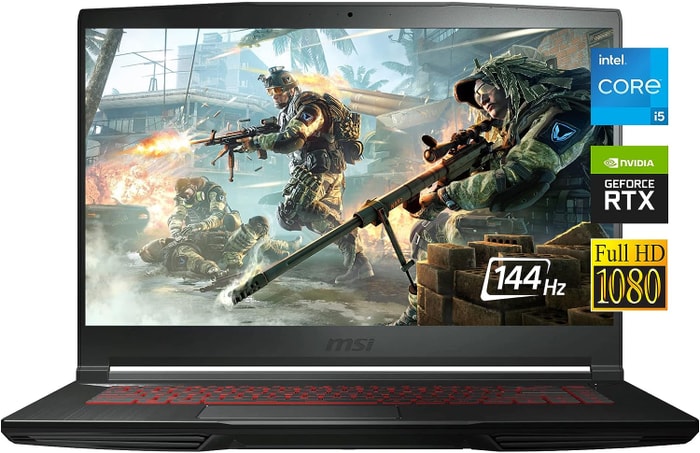
Pros and cons
- Excellent performance for the price
- Solid build quality
- Average battery life
- Annoying bloatware
Alternatives
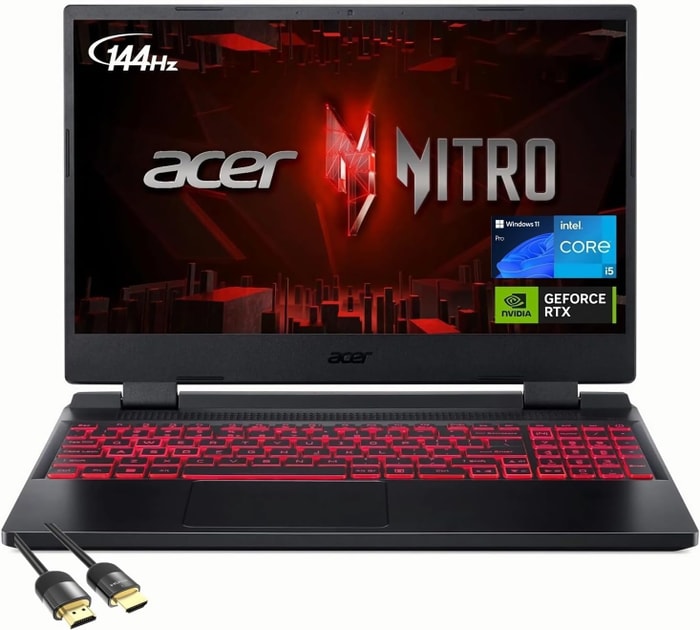
acer Nitro 5
- Affordable price
- Steady mainstream gaming performance
- Limited storage and CPU for gaming
- Middling build quality
Lenovo Ideapad3i
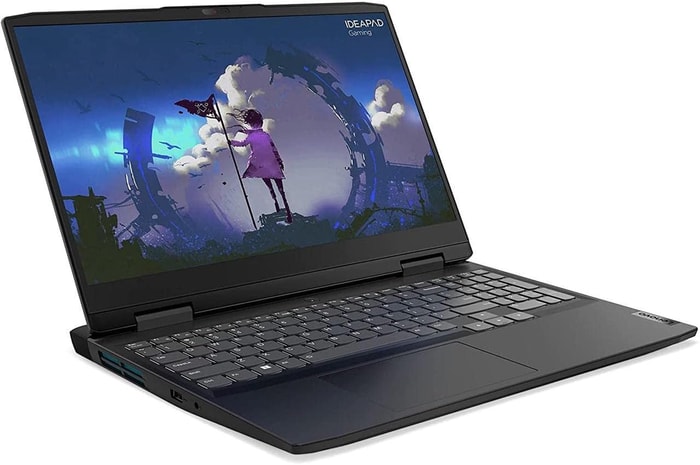
Pros and cons
- Good and stable performance development
- Impressive 165-Hz display
- Mediocre quality and workmanship of the case
- Single-channel RAM
ASUS TUF F15 FX507VU-ES53
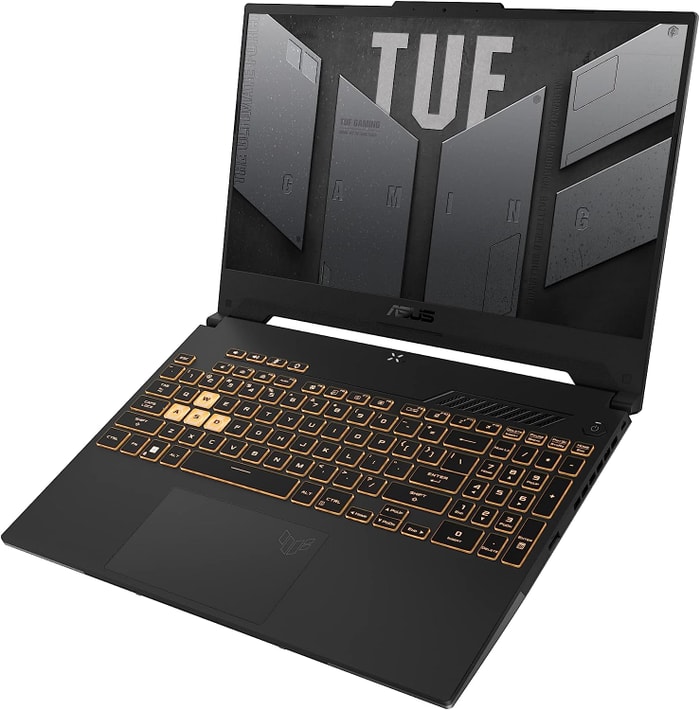
Pros and cons
- Superb 1080p gaming performance
- Strong productivity capabilities
- Poor webcam, touchpad, and speakers
- Some games appear washed out on display
Alternatives
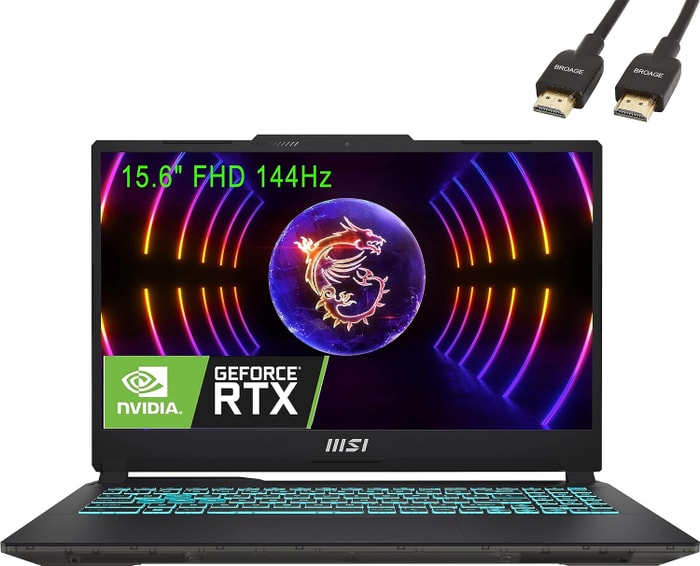
MSI Cyborg 15
- Able to play games at high settings
- Affordable price
- Dim display
- Sharp chassis edges
GIGABYTE G5 KF5
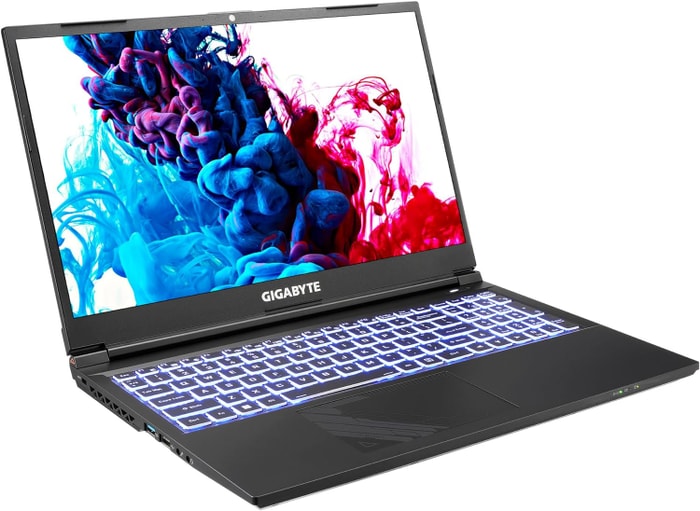
Pros and cons
- Great gaming performance
- Nice-looking screen
- Loud under load
- Larger SSD upgrade is a must
Alternatives
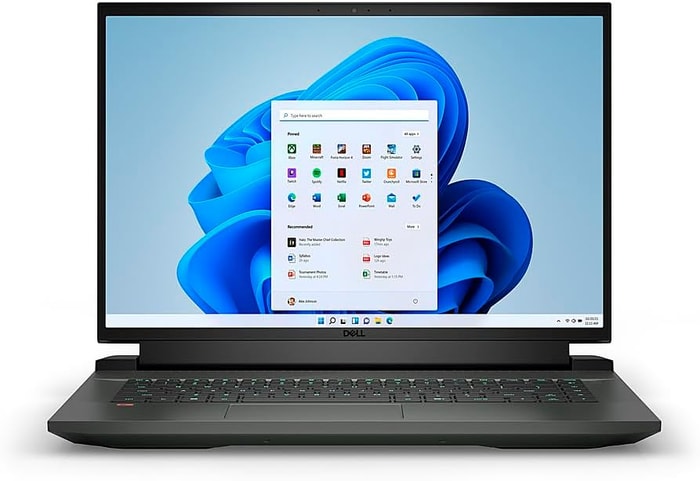
Dell G16
- Relatively affordable
- Good performance for gaming and productivity tasks
- Heavier and thicker than competitors
- Thunderbolt 4 only available on more expensive models
HP Envy 16
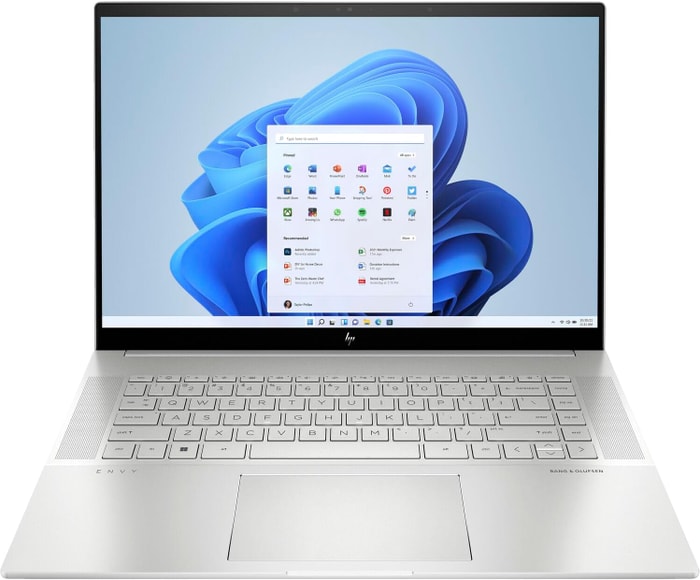
Pros and cons
- Plenty of CPU and GPU power
- New 120Hz screen refresh rate
- Merely adequate base screen
- Optional OLED has fewer pixels than before
Alternatives

ASUS ROG Strix G15
- High-performance CPU and GPU
- Excellent workmanship
- Limited connectivity options
- May experience coil whine in certain situations
Lenovo Legion Pro 7i 16

Pros and cons
- Strong overall performance
- Display is big, bright, and fast
- Some flex to keyboard deck
- Poor battery life
Alternatives

HP Omen 17
- QHD display with 165 Hz
- Advanced Optimus technology
- Slightly below-average performance for a RTX 4080
- High noise level
Table of the Best Laptops for Suicide Squad: Kill The Justice League
| Laptop | Price (approx) |
| MSI GF63 Thin | $800 |
| Lenovo Ideapad3i | $850 |
| ASUS TUF F15 FX507VU-ES53 | $1100 |
| GIGABYTE G5 KF5 | $1270 |
| HP Envy 16 | $1800 |
| Lenovo Legion Pro 7i 16 | $3390 |

